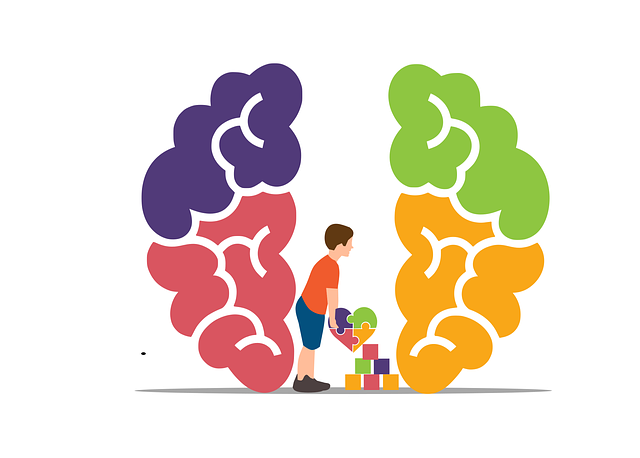Northglenn Terminal Illness Therapy identifies burnout risks among healthcare providers, such as heavy caseloads and emotional strain from terminal illness cases. They advocate for strategies like Self-Care Routine Development, Compassion Cultivation, Mindfulness Meditation, and effective communication to combat burnout. Mentorship programs, mental health education, and wellness coaching integrate into workflows reduce risk by teaching coping mechanisms and setting boundaries. These practices enhance resilience, job satisfaction, and patient care in demanding healthcare settings, fostering a supportive environment at Northglenn Terminal Illness Therapy centers.
Healthcare provider burnout is a growing concern in Northglenn Terminal Illness Therapy settings. This article explores comprehensive strategies to prevent and combat burnout among healthcare professionals, focusing on identifying risk factors specific to these environments. We delve into effective communication methods, the integration of mindfulness practices, and the creation of supportive work environments tailored for Northglenn terminal illness therapy centers. By implementing these strategies, healthcare providers can enhance job satisfaction and resilience in the face of challenging patient care situations.
- Understanding Burnout Among Healthcare Providers
- Identifying Risk Factors for Burnout in Northglenn Terminal Illness Therapy Settings
- Effective Communication Strategies to Combat Burnout
- Integrating Mindfulness and Stress-Reduction Techniques
- Building a Supportive Environment at Northglenn Terminal Illness Therapy Centers
Understanding Burnout Among Healthcare Providers

Burnout among healthcare providers is a growing concern, especially given the demanding nature of their work. It goes beyond mere job dissatisfaction; it’s a state of emotional, physical, and mental exhaustion that can significantly impact professionals in the medical field. Northglenn Terminal Illness Therapy highlights this pressing issue, recognizing that healthcare workers often face intense pressure to deliver quality care while managing high patient loads, long shifts, and complex decision-making processes.
Understanding burnout is crucial for implementing effective prevention strategies. Self-Care Routine Development for Better Mental Health, Compassion Cultivation Practices, and Mindfulness Meditation are among the tools being explored to counteract this issue. These practices encourage professionals to prioritize their well-being, foster compassion towards themselves and patients, and cultivate a mindful approach to work—all of which can contribute to enhanced resilience and job satisfaction in the healthcare sector.
Identifying Risk Factors for Burnout in Northglenn Terminal Illness Therapy Settings

In Northglenn Terminal Illness Therapy settings, identifying risk factors for burnout among healthcare providers is a critical step in fostering a supportive and resilient work environment. Burnout is a significant concern due to the emotionally demanding nature of providing end-of-life care. Several factors contribute to this, including heavy caseloads, high patient acuity, and prolonged exposure to distressing symptoms and conversations. Regularly assessing provider workloads, access to resources, and support systems is essential.
Cultural sensitivity in mental healthcare practice plays a pivotal role in mitigating burnout risks. Given the diverse nature of patients and their families in Northglenn Terminal Illness Therapy settings, providers must be equipped to offer culturally competent care. This involves understanding and respecting different belief systems, values, and communication styles. Additionally, integrating emotional regulation techniques into provider training programs can enhance their ability to manage stress and maintain boundaries, reducing the chances of burnout. Mentorship programs and regular mental health education programs designed with a focus on resilience-building strategies are also valuable tools in preventing burnout among healthcare providers in these settings.
Effective Communication Strategies to Combat Burnout

In healthcare settings, effective communication plays a pivotal role in preventing burnout among providers. Mentors and colleagues alike can foster an environment that promotes resilience by employing active listening techniques, encouraging open dialogue, and providing constructive feedback. These strategies not only enhance patient care but also strengthen interpersonal relationships within medical teams. By creating safe spaces for emotional expression and sharing experiences, healthcare workers can better manage stress and avoid burnout, especially when dealing with challenging cases, such as those involving terminal illnesses in Northglenn.
Integrating mental wellness coaching programs and risk management planning into the workflow can further mitigate burnout risks. These initiatives support professionals in developing coping mechanisms, setting boundaries, and prioritizing self-care—all essential components of resilience building. Through ongoing training and access to resources like counseling services, healthcare providers can maintain optimal mental health, ensuring they are equipped to offer compassionate care even in demanding situations.
Integrating Mindfulness and Stress-Reduction Techniques

In the demanding landscape of healthcare provision, burnout among professionals is a growing concern. Integrating mindfulness and stress-reduction techniques offers a promising avenue to combat this issue. These practices, often utilized in Northglenn Terminal Illness Therapy, encourage professionals to take a step back from the hustle and bustle, fostering mental clarity and emotional resilience. By incorporating mindfulness into daily routines, healthcare providers can enhance their ability to navigate challenging patient interactions with composure, reducing the stress that contributes to burnout over time.
Stress reduction methods, as supported by Trauma Support Services, play a crucial role in breaking down the barriers created by the Mental Illness Stigma Reduction Efforts. Through techniques like meditation and deep breathing exercises, providers can cultivate self-care practices that recharge their spirits and sustain their dedication. This proactive approach not only benefits individual well-being but also improves patient care as refreshed and focused healthcare professionals are better equipped to offer compassionate and effective treatment.
Building a Supportive Environment at Northglenn Terminal Illness Therapy Centers

At Northglenn Terminal Illness Therapy Centers, creating a supportive environment is a cornerstone of our commitment to patient care and provider well-being. We understand that healthcare providers, especially those specializing in terminal illness therapy, face unique challenges that can lead to burnout if left unaddressed. To combat this, we’ve implemented several strategies aimed at fostering a culture of mental wellness and emotional intelligence within our team.
One key initiative is our Community Outreach Program, designed to enhance connections between our providers and the communities they serve. By engaging in community events and educational programs, our staff members not only build stronger relationships with patients and families but also receive invaluable support and recognition from their local networks. This sense of belonging and purpose contributes significantly to improved emotional intelligence and overall job satisfaction, mitigating risks of burnout.
Burnout among healthcare providers, particularly in Northglenn Terminal Illness Therapy settings, can be mitigated through a multifaceted approach. By understanding the risk factors and implementing strategies like effective communication, mindfulness practices, stress-reduction techniques, and fostering a supportive work environment, Northglenn Terminal Illness Therapy centers can significantly enhance provider well-being. These proactive measures not only benefit individual therapists but also improve patient care outcomes, ensuring a healthier, more sustainable future for the healthcare team.











